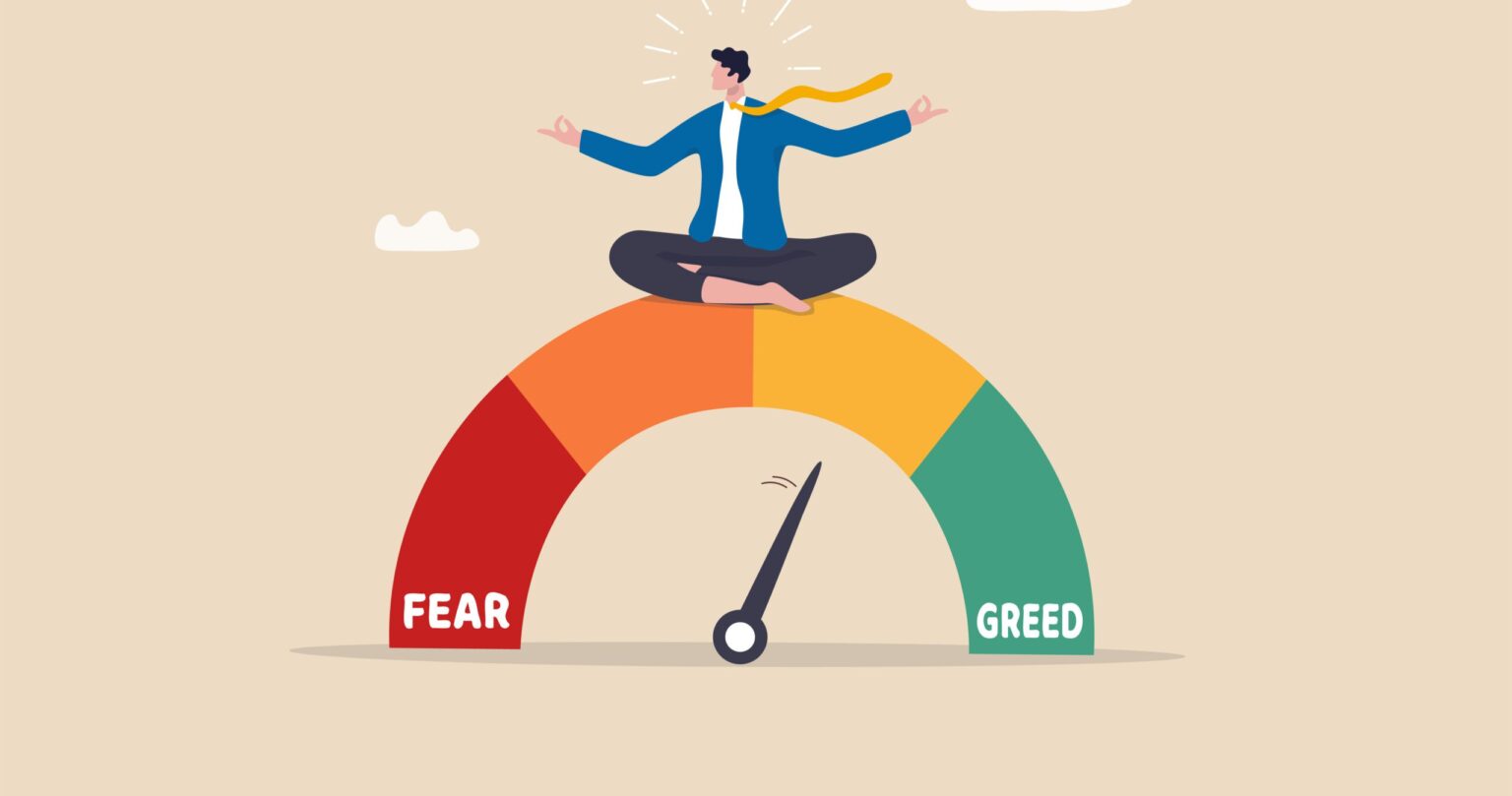19 Aug 2023
The Psychology of Fear and Greed in Stock Market Investing

There's a saying that the Stock Market is driven by two emotions: Fear and Greed.
Indeed, it's true that fear and greed are two emotional stages which are theorized as factors that play a killjoy in equity decision-making. These emotions are central to the psychology of fear and greed traders. And if one succumbs to these emotions, it can have dire consequences for their portfolio.
You see, when fear takes hold, rationality often takes a backseat. This means investors sell off their stocks in droves when fear is associated with them. Likewise, greed is an easy emotion that instigates investors (not the way fear does) to buy higher-priced stocks.
So if emotions supervise investment decisions, it verbatim leads to irrational decisions that may cost you tremendous coffers. Meanwhile, let's delve into the psychology behind fear and greed in stock market psychology.
What Is Behavioral Finance?
- Investors tend to fall victim to different biases when making financial decisions.
- Behavioural finance is the medley of behavioural and cognitive psychology with economic theory.
- In other words, behavioral finance in the context of the stock market conveys that investors make decisions based on bounded rationality rather than fully optimizing their decision-making process.
- Besides this, behavioural finance also plays a pivotal role in shaping the approach to investment decisions.
Common Stock Market Fears
Emotions are the powerful drivers that can impact a trader's investment decisions. And as far as emotional turmoil is concerned, investors usually make bad decisions.
Even Harvard Business Reviews says that the human brain has two tricks up its sleeves to help make decisions which is:
- Emotional Tagging.
- Pattern Recognition.
Circling back to the primary point, here are some stock market fears that investors should be aware of:
- Fear: This emotion ushers to panic selling which results in consequential losses. Ensure that your judgments are based on reason rather than dread.
- Envy: Admiring your fellow investor's success is one thing, but keeping jealousy can jeopardize your own investment.
- Greed: Holding stocks for a long time can result in significant losses.
- Depression: The one trait that depression has when stuck in an investor's mind is that it makes them recall their failures more than their success. They believe they're safeguarding their investment but are missing out on some great opportunities.
- Overconfidence: Investors follow their herd instincts to increase their positions despite it's high valuations.
- Denial: Investors tend to ignore the warning sign as the market demands weakness.
- Panic: As soon as the prices plummet, investors' heart rushes to sell.
- Capitulation: Investors exit the markets when their herd accepts its losses.
How To Manage The Psychology Of Fear And Greed To Be A Successful Trader
Develop a Well-Defined Trading Plan
- Every trader must have a well-defined trading plan written in stone.
- Because it outlines everything about your trading, like your risks, markets you trade on, hours you invest in, and the time you put into the study.
It ensures that your:
- Mind stays on track and
- You don't get deviated from this agenda due to emotional impulses.
Learn From Others
- According to an article published in Science, emotions do play a crucial role in making decisions and evaluating risk.
- On average, traders relinquished their money even though there were more green trades in contrast with the losing ones.
- Why? Because traders hold their positions with the hope of turnaround when the price stirs against their trade than they would have gained if it moved in their favour.
Have A Journal
- If you keep losing your trades or constantly getting stopped and don’t know why, you must create a trading journal.
- Having a trading journal beside you to track every single one of the traits will help you analyze your win/loss ratio and RSI (Relative Strength Index) level.
- Using a trading journal as a tool will help you grow as a trader in the Forex or stock markets and allow you to find out why you are losing trades and adjust your strategy accordingly so that those losses don’t happen as often.
Furthermore, if you’re planning to invest in the stock market classes indore, the assistance of a stock market professional can help you with the best results and profits. NIWS is one of the renowned Stock Market Institute in India and offers the best stock trading courses.
One of the main benefits of opting for trading courses from NIWS - one of the best stock market institutes in Delhi is the professional’s expertise and experience, which help learners with financial and technical analysis, eliminating the chances of psychological fear or emotion-driven decisions.
Tips to Avoid Emotional Investing
Buy And Hold
- The ones who are active traders are underperformers in the stock market, says- Professor Terrance Odean studies investor behaviour.
- The grounds behind why this professor stated this is because these traders sell up their winnings and hold their losing investments.
- Whereas the ones who are the highest performers don't trade very often.
Diversify Your Portfolio
-
When you invest in a bunch of different assets, the growth in some helps nullify the losses of others.
Cook Your Facts
- One thing many novice investors are guilty of is investing with their emotions instead of a practical approach. For example, if you plan on investing in small-cap stocks, you should obviously not focus on long-term gains or returns.
- However, you should still find stocks that are priced at attractive levels. This will make your short-term investing decisions with a higher degree of success.
If you want to ace stock trading while reducing the risks of emotionally-driven investment decisions, NIWS - a stock market institute in Delhi and Jaipur is the best option to upskill. Connect with expert stock trading professionals now to learn more.